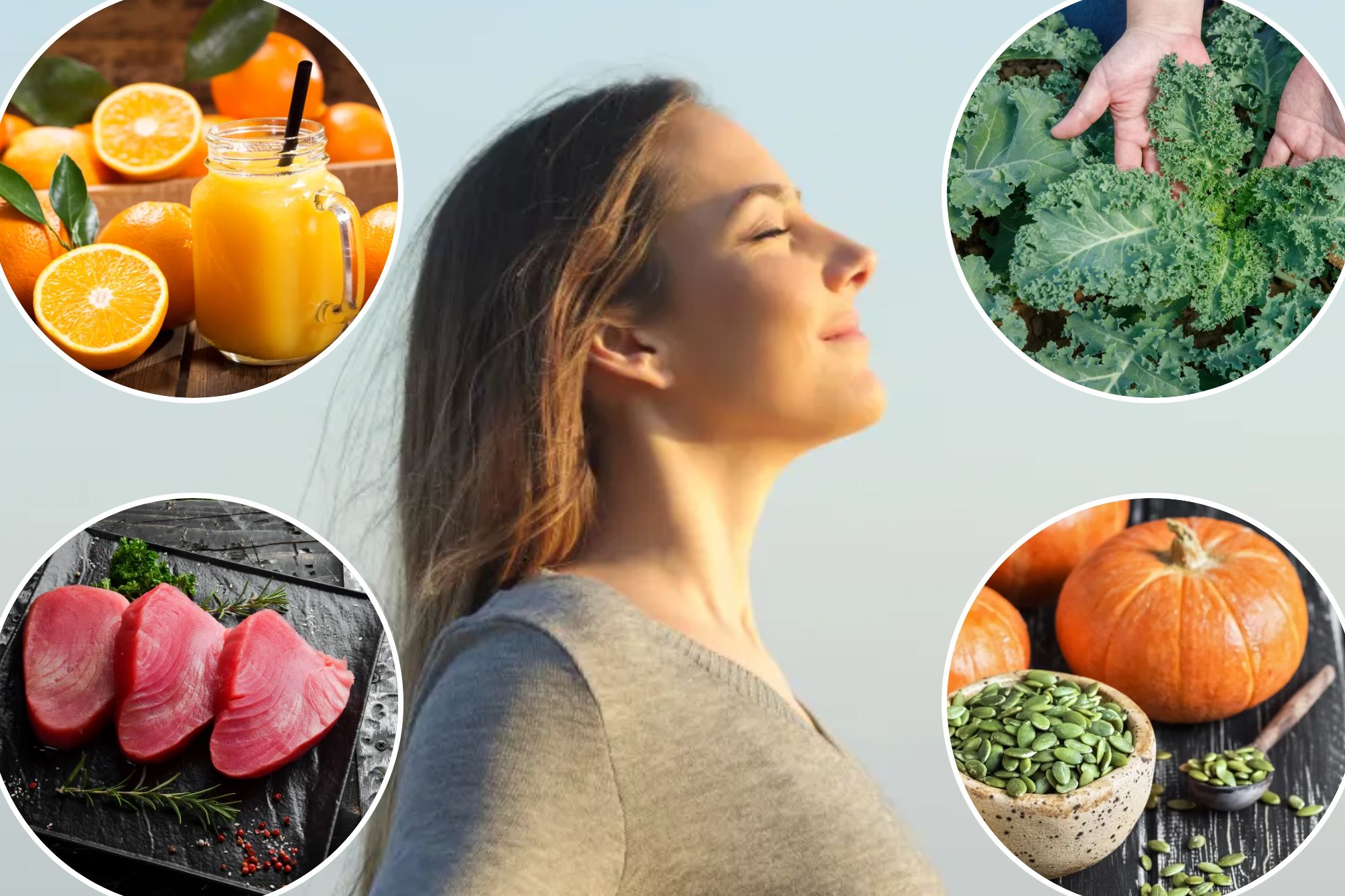
With the holidays just around the corner and the presidential election just around the corner, fall can be a season of stress for many people.
Experts say that the food we eat can reduce the effects of stress by nourishing our bodies with vitamins and minerals.
Researchers have time emphasized the importance of the gut-brain connection –” the idea that the gut and brain communicate constantly through a complex network of nerves and chemical signals.
Dr. Daniel Amen, a brain imaging researcher in California, says in a TikTok video posted last week, “You have to feed your gut … healthy foods, fiber, colorful fruits and vegetables, and healthy proteins so that your gut to support your brain.â€
This week, nutritionists shared with HuffPost five dietary staples for stress relief — orange juice, leafy greens, tuna, pumpkin seeds and salmon.
Orange juice
Rise and shine — a glass of OJ gets rave reviews from experts for how it can keep oxidative stress in check.
A 2022 study found that drinking 100% orange juice with no added sugar can reduce inflammation and oxidative stress in healthy adults and those at high risk of developing chronic disease.
One glass of nutrient-dense orange juice contains the entire recommended daily amount of vitamin C for most adults.
Leafy greens
Rich in folate and antioxidants, as well as vitamins K, C, A and calcium, leafy greens like kale and spinach are a boon for the brain.
These greens contain tryptophan, an amino acid essential for the formation of serotonin, the “feel-good hormone” that regulates mood and can help prevent anxiety and depression.
Experts recommend aiming for 400 micrograms of folate and 700 to 900 micrograms of vitamin A per day, depending on age and gender.
Tuna
The high amounts of vitamins B6 and B12 in tuna can help reduce stress by increasing the body’s production of serotonin and gamma-aminobutyric acid, a neurotransmitter in the brain that plays a key role in regulating sleep and stress.
According to the Cleveland Clinic, GABA calms the central nervous system, promoting feelings of calm.
Tamar Samuels, a registered dietitian and co-founder of Culina Health, told HuffPost, “B12 is critical to the function of the nervous system, and a lack of this nutrient can even cause nerve damage. Studies have also found that supplementing with B12 and folate can help balance stress and regulate mood.
Pumpkin seeds
Pumpkin seeds are a bona fide superfood and certified stress reliever. Pumpkin seeds and pepitas (shelled seeds) contain antioxidants, including flavonoids, phenolic acids, vitamin E and carotenoids. These antioxidants are known to protect cells from disease-causing damage and reduce inflammation in the body.
Pumpkin seeds are also rich in magnesium, a mineral known to help regulate the release of cortisol, promoting feelings of peace and supporting deeper, more restful sleep.
A 1-ounce serving of pumpkin seeds provides about 40% of the suggested daily value of magnesium.
Salmon
Salmon is extremely rich in omega-3 fatty acids, which are known to reduce inflammation, boost brain function and support serotonin production.
Lauri Wright, a registered dietitian and professor at the University of South Florida College of Public Health, told Fox News that salmon is the best fish for overall health. In addition to being packed with protein, the omega-3s in salmon support cardiovascular and brain health.
A 3- to 4-ounce serving of salmon provides almost all of the suggested daily value for omega-3s.
What to avoid
Just as certain foods can buffer stress, others can amplify it. The two main culprits? Caffeine and sugar.
According to a report from the University of Cambridge, caffeine antagonizes adenosine receptors and “is involved in worsening anxiety and sleep disorders.”
Health experts recommend that people experiencing problems with stress or anxiety try to reduce or eliminate coffee and other caffeinated beverages from their diet.
Sugar also equals stress. Registered dietitian Roxana Ehsani tells HuffPost, “Cookies, sweets and sugary cereals can increase your feelings of stress. Although you may find comfort after indulging in your favorite dessert, it will be short-lived.â€
Her advice is supported by recent research that found that eating fatty or sugary foods before or during a stressful event reduces brain and heart function and slows the body’s recovery from stress.
#Nutritionists #reveal #worst #foods #drinks #stress #relief
Image Source : nypost.com